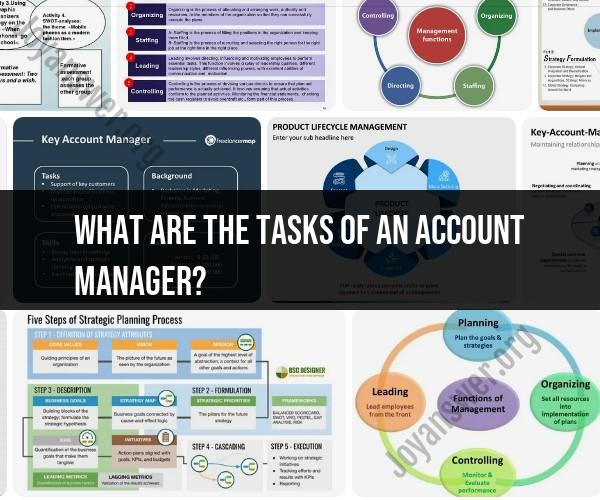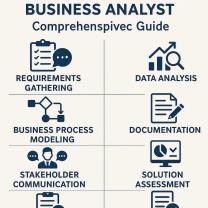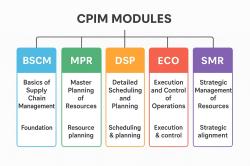What are the tasks of an account manager?
The tasks of an account manager can be diverse and multifaceted, as they primarily revolve around managing client relationships, ensuring client satisfaction, and driving business growth. Below is a comprehensive overview of the tasks typically associated with the role of an account manager:
1. Client Relationship Management:
- Build and nurture strong, long-term relationships with clients.
- Act as the main point of contact and liaison between the client and the company.
- Develop a deep understanding of the client's business, industry, and needs.
2. Needs Assessment and Analysis:
- Conduct thorough needs assessments to understand the client's goals, challenges, and expectations.
- Analyze client data and feedback to identify opportunities for improvement.
3. Account Planning and Strategy:
- Create and execute account plans that outline strategies for achieving client objectives.
- Develop and implement sales, marketing, and customer support strategies.
- Set and monitor performance goals and key performance indicators (KPIs).
4. Sales and Revenue Growth:
- Manage and grow the revenue generated from assigned client accounts.
- Identify cross-selling and upselling opportunities to increase sales.
- Negotiate contracts, pricing, and agreements with clients.
5. Problem Solving and Issue Resolution:
- Address client issues, concerns, and challenges promptly and effectively.
- Collaborate with internal teams to develop solutions that meet client needs.
- Implement corrective actions and preventive measures as needed.
6. Communication and Coordination:
- Facilitate clear and open communication between clients and internal teams.
- Relay client feedback, requests, and issues to relevant departments.
- Ensure timely responses to client inquiries and concerns.
- Coordinate and manage projects, deliverables, and timelines.
7. Client Training and Support:
- Provide training and support to clients to maximize the value of products or services.
- Conduct training sessions, offer technical assistance, and provide educational resources.
8. Client Feedback and Reporting:
- Collect, analyze, and act upon client feedback to enhance satisfaction.
- Collaborate with clients on product or service improvements.
- Generate regular reports on account performance and share insights with clients and company leadership.
9. Cross-Functional Collaboration:
- Collaborate with internal departments, such as sales, marketing, product development, and customer support, to address client needs and achieve account objectives.
10. Market Research and Industry Knowledge:- Stay informed about industry trends, competitive landscapes, and market conditions.- Provide clients with insights and recommendations based on market intelligence.
11. Financial Management (Depending on Role):- Manage account budgets, pricing strategies, and financial analysis.- Oversee invoicing, payment processing, and financial transactions related to client accounts.
12. Client Retention:- Develop and execute strategies for client retention and loyalty.- Identify opportunities to enhance the client experience and strengthen relationships.
13. Reporting and Analysis:- Prepare and deliver presentations and reports on account performance to clients and internal stakeholders.- Analyze account data to track progress, identify trends, and make data-driven decisions.
14. Market Expansion and New Business Development (Depending on Role):- Identify opportunities for expanding business within existing client accounts.- Prospect and acquire new clients to grow the client portfolio.
The role of an account manager is dynamic and multifaceted, requiring a blend of interpersonal skills, business acumen, problem-solving abilities, and strategic thinking. Successful account managers focus on understanding and fulfilling client needs while driving revenue growth and ensuring the overall satisfaction of their clients.
The three titles you have provided highlight the importance of understanding the key tasks and responsibilities of an account manager. Account managers play a vital role in the success of any business, as they are responsible for developing and maintaining relationships with clients, managing accounts, and ensuring that clients are satisfied with the products and services they receive.
Demystifying the Role: The Key Tasks and Responsibilities of an Account Manager
This title emphasizes the importance of understanding the various tasks and responsibilities that account managers perform. These tasks and responsibilities can vary depending on the industry and the specific company, but they typically include developing sales strategies, managing client relationships, and resolving customer issues.
A Comprehensive Guide to the Duties of an Account Manager
This title provides a comprehensive overview of the duties of an account manager. It highlights the importance of having strong sales and relationship-building skills, as well as the ability to manage multiple projects simultaneously.
The Nuts and Bolts of Account Management: What Account Managers Do
This title provides a simplified overview of the key tasks and responsibilities of an account manager. It emphasizes the importance of developing and nurturing relationships with clients, as well as ensuring that clients are satisfied with the products and services they receive.
Here is a more detailed overview of the key tasks and responsibilities of an account manager:
- Develop and manage client relationships: Account managers are responsible for developing and maintaining relationships with clients. This includes understanding the client's needs, developing sales strategies, and resolving customer issues.
- Manage accounts: Account managers are also responsible for managing accounts. This includes tracking sales and performance, preparing reports, and attending meetings.
- Build and maintain relationships: Account managers must be able to build and maintain relationships with clients. This requires strong communication and interpersonal skills.
- Negotiate and close deals: Account managers must be able to negotiate and close deals. This requires a strong understanding of the client's needs and the products and services that their company offers.
- Be knowledgeable about your products and services: Account managers must be knowledgeable about the products and services that their company offers. This allows them to provide accurate information to clients and to develop effective sales strategies.
- Be committed to customer satisfaction: Account managers must be committed to customer satisfaction. This means being responsive to client needs and concerns, and ensuring that clients are happy with the products and services they receive.
Account managers play a vital role in the success of any business. By understanding their key tasks and responsibilities, you can better appreciate the value they bring to the table.
Here are some additional tips for being a successful account manager:
- Be proactive and reach out to clients regularly.
- Be a good listener and communicator.
- Be organized and efficient.
- Be able to manage multiple projects simultaneously.
- Be able to think strategically and develop solutions to client problems.
- Be a team player and be willing to collaborate with others.
By following these tips, you can set yourself up for success as an account manager.













